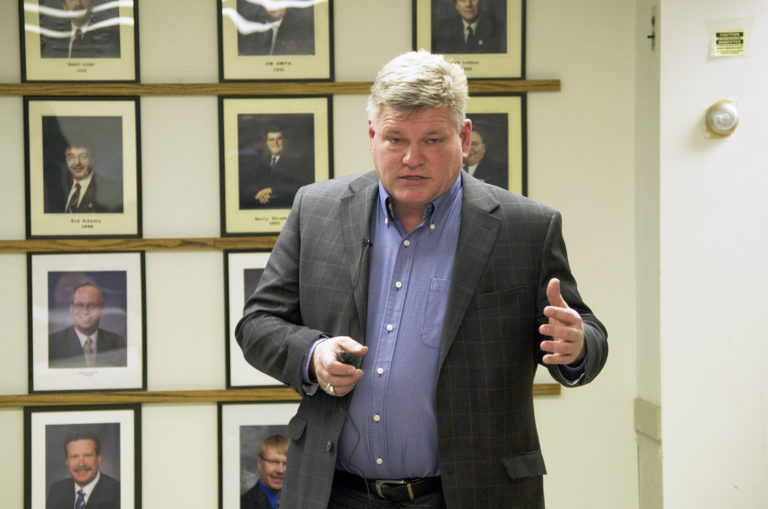
Finance Minister Chrystia Freeland presented a federal budget on Tuesday that cut $15 billion in spending, but still includes a $40.1 billion deficit.
Freeland said Canada has made a “remarkable recovery” from the COVID recession, recovering 126 per cent of jobs lost during those first few months. However, the federal government still expects to collect $5.7 billion less in revenue this year, finishing with a projected deficit that is nearly $10 billion higher than what Freeland predicted in the fall.
Freeland said they needed to find a balance between new investments, like an expansion of the country’s dental care insurance program to benefit families with a household income of less than $90,000, and saving to maintain the country’s AAA credit rating. She’s confident the budget accomplished that.
“It’s really important for us to continue to be a fiscally responsible government, (and) to maintain that AAA credit rating,” Freeland told reporters afterwards. “Finding that balance, I think, quite appropriately, involves the government taking a look at how we do things ourselves and doing it a little more efficiently so that we can afford to continue to invest in Canadians.”
Prince Albert Conservative MP Randy Hoback said the federal government has good intentions, but isn’t spending money wisely.
The budget contains no new funding to build more residential housing units, but has a few plans to designed to reduce cost of living, such as the new Grocery Rebate. That rebate will cost the feds around $11 million, and will provide up to $467 for eligible couples with two children, or up to $234 for single Canadians without children.
“It’s a nice gesture, and you never want to mock it at $200 to $400, because for a lot of people that is a lot of money,” Hoback said during a phone interview on Wednesday. “Having said that, when you go to the grocery store in Prince Albert or in Nipawin or Tisdale, $200 doesn’t go that far anymore.”
Hoback said the cost of groceries is just one of several cost of living issues he’s hearing concerns about. He said most Prince Albert residents already face steeper prices at the grocery store, and this rebate won’t provide much help.
“You have to be very selective on what you want to buy because food inflation has gone up so much and while this is a nice gesture, it really will not do anything to lower those costs,” he said.
Instead, Hoback said the federal government should put an end to the carbon tax, which he blamed for high price of shipping and food production. The Carbon Tax is set to increase by 25 per cent on April 1, up to a total of $50 per tonne of emissions. That will amount to an increase of around 2.2 cents per litre for gas.
Grocery costs already rose 11.4 per cent year-over-year in January 2023, according to Statistics Canada. That’s nearly double the rate of inflation, which sat at 5.9 per cent that month.
Hoback said the federal government collects a large amount of taxes from Canadians, but isn’t spending that money wisely.
“We’re sending a lot of money to Ottawa,” he said. “They’re collecting a lot of taxes and we look at how they’re spending the money we give them, they’re not showing the respect to the taxpayers on how they’re spending that money, and that is very concerning.”
During her budget presentation, Freeland told the House of Commons she expected the rate of inflation to drop to 2.3 per cent. Hoback said he’s not confident the federal government can do that without raising interest rates.
“This budget is actually a very scary budget at this time considering the rate of inflation that’s going on in Canada and the amount of money they’re pumping back into the economy,” he said.
Freeland said they based their economic forecast on the average forecasts of several private sector economists. She said it’s important to be clear that their baseline forecast is entirely objective.
“It’s not my prediction,” she said. “These are the averages.”
